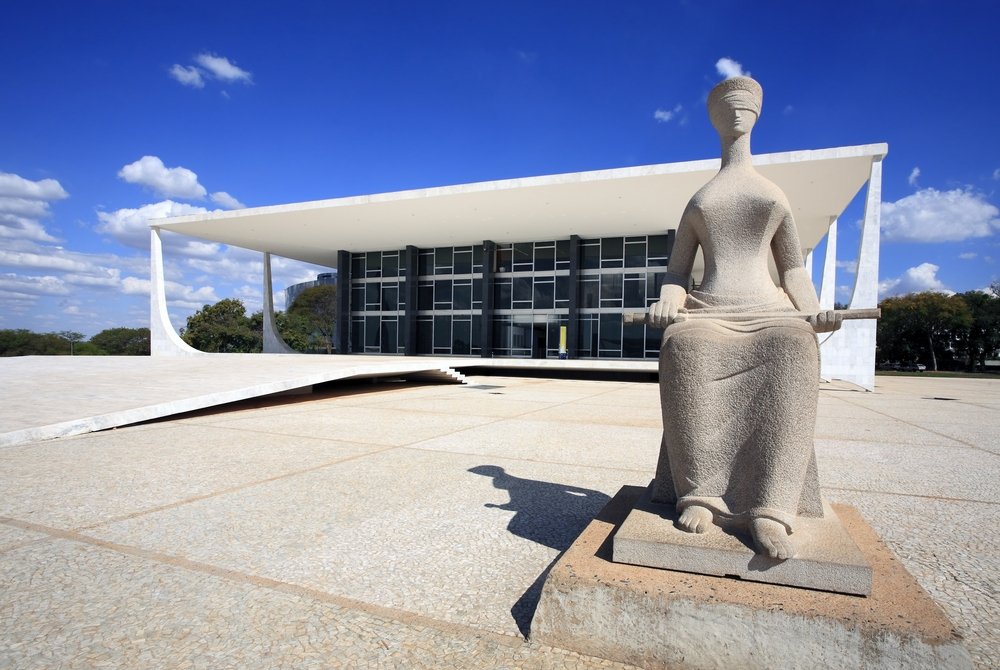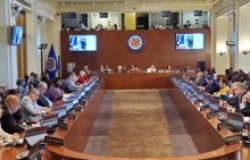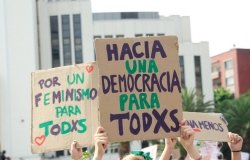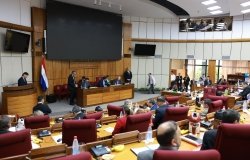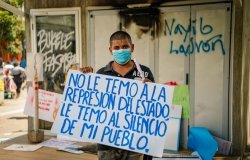
A blog of the Latin America Program
The Brazilian Supreme Court’s Troubling Harassment of Transparency International
February has been a busy month in Brazil. Carnaval brought its usual distractions. The Federal Police announced a criminal investigation into former President Jair Bolsonaro and several of his former military aides for allegedly plotting to overturn the 2022 election. Lost in the mix was a chilling decision by a Supreme Court justice that epitomizes the grave regression in the country’s anticorruption efforts.
On February 5, Justice Dias Toffoli–one of 11 justices on the Supreme Federal Tribunal–ordered an investigation into Transparency International for alleged mismanagement of public funds. The decision, without input from the other judges, raised deep concerns about Brazil’s commitment to fighting corruption, and about the state of the high court.
The decision, without input from the other judges, raised deep concerns about Brazil’s commitment to fighting corruption, and about the state of the high court.”
Toffoli’s order came in response to allegations from a Workers’ Party congressman that federal prosecutors and Transparency International had engaged in the “undue appropriation” of public funds a decade ago. At the time, Transparency International was advising prosecutors on how to manage large fines paid by the giant meatpacking firm J&F, the parent company of JBS. The firm was caught up in four major anticorruption investigations and negotiated a leniency agreement that involved a 10.3 billion real (about $2 billion) fine and an admission of misconduct.
There is ample evidence of inappropriate contact between federal prosecutors and Sérgio Moro, the judge at the heart of the massive anticorruption investigation known as Lava Jato (Car Wash). In 2019, the Intercept published messages hacked from prosecutors’ Telegram accounts that demonstrated extensive coordination between investigators and the judge. But there is little doubt about J&F’s wrongdoing and no evidence of bad behavior by Transparency International, a globally respected anti-corruption organization.
For Toffoli, the decision to target Transparency International was part of a troubling pattern:
- Toffoli reportedly lobbied for a seat on the chamber of the Supreme Court that supervises Lavo Jato, cementing a majority of justices considered hostile to the investigation and placing him at the center of these cases.
- In August, the Supreme Court ruled that justices whose family members represented plaintiffs with business before the court need not recuse themselves from those cases, a category that included Toffoli’s wife, a lawyer for J&F.
- In September, Toffoli ruled that evidence included in the leniency agreement between prosecutors and the construction firm Odebrecht was no longer admissible in court, including information about a secret internal accounting system that catalogued $788 million in bribes the company admitted to paying to government officials across three continents.
- In December, during the Supreme Court’s holiday break, Toffoli suspended fines imposed on J&F as part of the company’s leniency agreement.
- In January, Toffoli suspended 3.8 billion reais (about $780 million) in fines against Odebrecht and authorized the company to renegotiate its leniency agreement.
Toffoli’s accusations against Transparency International are particularly egregious. After all, Transparency International has repeatedly made clear it did not manage funds prosecutors collected from J&F, but rather offered advice on how prosecutors could best deploy those resources. Further, Brazil’s prosecutor general in 2020 had already investigated related allegations against Transparency International and found no criminal conduct.
In this context, it seems clear Toffoli’s investigation is designed to intimidate Transparency International and its allies in civil society. The timing of his decision was also telling, coming immediately after the organization released its annual report, which criticized Brazil’s backsliding in the fight against corruption and specifically called out Toffoli’s decisions in the J&F and Odebrecht cases.
As Transparency International has documented, Toffoli’s decisions underscore a significant shift away from Brazil’s anticorruption efforts over the past seven years. In our recent book, Brazilian Politics on Trial, Luciano Da Ros and I write about the factors behind that change, including polarization and apathy, prosecutorial mistakes in Lava Jato, legislative reforms designed to kneecap anti-corruption investigations, attempts by Brazilian leaders to neuter oversight agencies, and a series of court decisions unfavorable to the fight against corruption in South America’s largest nation.
Brazil’s Senate has passed a proposal for a constitutional amendment that would restrict the ability of individual justices to make unilateral decisions, potentially limiting the harm that any individual member of the court could inflict in the fight against corruption.”
Even so, the coming months offer opportunities to halt this backward slide. The prosecutor general has appealed the suspension of the J&F and Odebrecht fines. The appeal also offers a chance to address concerns related to Toffoli’s failure to recuse himself, as well as broader questions about the court’s approach to anti-corruption investigations, including Lavo Jato. Meanwhile, one Supreme Court justice is reportedly preparing a review of all leniency agreements approved by the high court. If carried out judiciously, this review could clarify the legal ambiguities of a mechanism that is still relatively new to Brazilian law and permit its continued use. Finally, Brazil’s Senate has passed a proposal for a constitutional amendment that would restrict the ability of individual justices to make unilateral decisions, potentially limiting the harm that any individual member of the court could inflict in the fight against corruption.
About the Author

Matthew Taylor
Professor, School of International Service, American University, and former Brazil Institute Fellow

Brazil Institute
The Brazil Institute—the only country-specific policy institution focused on Brazil in Washington—works to foster understanding of Brazil’s complex reality and to support more consequential relations between Brazilian and US institutions in all sectors. The Brazil Institute plays this role by producing independent research and programs that bridge the gap between scholarship and policy, and by serving as a crossroads for leading policymakers, scholars and private sector representatives who are committed to addressing Brazil’s challenges and opportunities. Read more

Latin America Program
The Wilson Center’s prestigious Latin America Program provides non-partisan expertise to a broad community of decision makers in the United States and Latin America on critical policy issues facing the Hemisphere. The Program provides insightful and actionable research for policymakers, private sector leaders, journalists, and public intellectuals in the United States and Latin America. To bridge the gap between scholarship and policy action, it fosters new inquiry, sponsors high-level public and private meetings among multiple stakeholders, and explores policy options to improve outcomes for citizens throughout the Americas. Drawing on the Wilson Center’s strength as the nation’s key non-partisan policy forum, the Program serves as a trusted source of analysis and a vital point of contact between the worlds of scholarship and action. Read more
